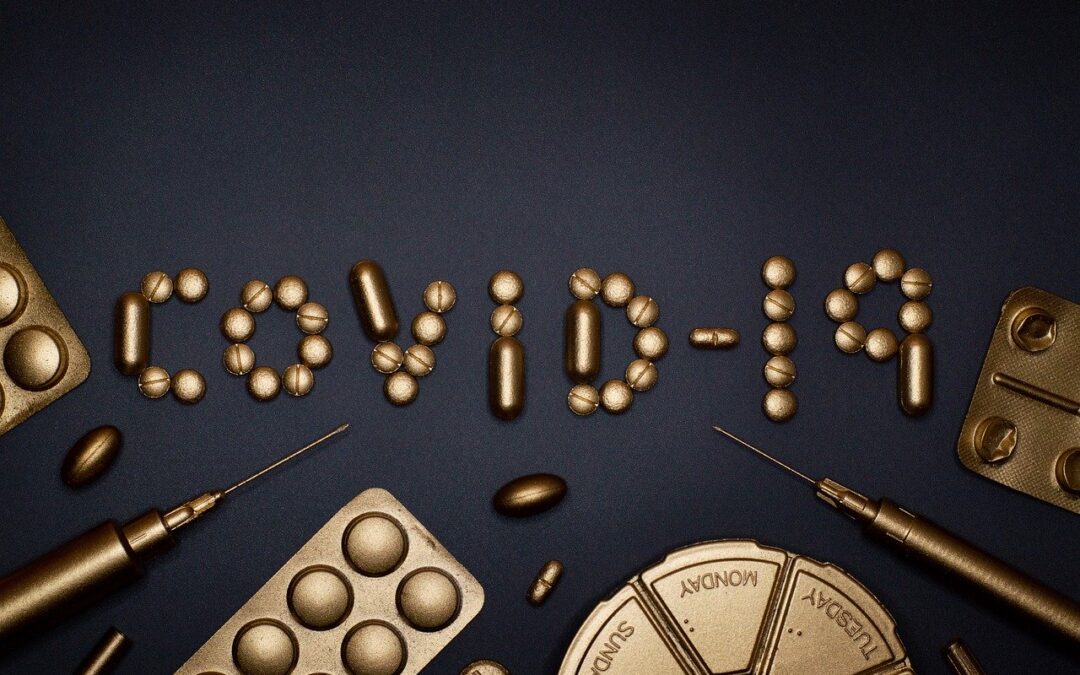Please note that the information provided here is based on a very small number of cases of pregnant women with COVID-19 infection, and new information appears every day. You will get the most current information from your doctor.
What is COVID-19?
COVID-19 is an infection caused by a coronavirus. This virus is a pathogen similar to many viruses that cause a common cold. The difference is that although most people do not experience symptoms more severe than with a common cold, people with other health problems, such as lung disease or diabetes, are more likely to have a more severe disease and develop severe lung disease. People with COVID-19 usually have a fever, cough or shortness of breath. If the symptoms get worse, they may have a serious breathing problem, which requires admission to a hospital or even an intensive care unit.
How does the virus spread?
The virus that causes COVID-19 mainly spreads through contact with an infected and sick person, or through contact with objects that the person sneezed, coughed or touched. The virus can be found in saliva or runny nose. The virus enters the body through contact with the mouth, nose or eyes.
How can I avoid getting COVID-19?
Washing your hands regularly after handling objects outside your home and avoiding touching your face with your hands are the best ways to avoid getting sick. A good way to avoid infection is to keep social distance (staying at least 2 meters away from others) and spend as much time as possible at home. To prevent transmission of the virus to others, people should sneeze or cough, covering their mouths with the bent hand (the inside of the elbow), not the hand.
Should I avoid going to the hospital or meeting my doctor or midwife?
During pregnancy, many appointments with your doctor and midwife are recommended, and these meetings are important for both your and your baby’s health, and you can only opt out after discussing with your doctor or midwife.
Some visits may be by phone or video call. Your doctor or midwife will consider whether this is a good solution for you. If you experience problems during pregnancy, do not hesitate to contact your doctor or midwife and discuss with them the best way to provide you with care. When you go to the clinic or hospital, remember to wash your hands regularly after touching objects, avoid touching your face with your hands, and try to keep a distance of at least 2 meters from other people in the waiting room. You should also wash your hands before leaving the clinic. If you have a cough, put on a mask when you arrive at the hospital or clinic and immediately inform someone of your symptoms, preferably before you arrive so that they can prepare better while waiting for you. If you have COVID-19 and you have an appointment scheduled, contact your doctor or midwife to see if it’s better to come or postpone it.
Is it dangerous for me to get COVID-19 during pregnancy?
We have very little information about pregnant women who get COVID-19. We are convinced that it is best to avoid getting sick. Based on the little information we have, it seems that pregnant women do not have COVID-19 more severely compared to women of the same age who are not pregnant. Women with other diseases, especially those with pulmonary problems, hypertension, diabetes or HIV are more likely to have COVID-19. For such conditions, you may require additional medical care during pregnancy. Most healthy pregnant women with a positive test result will be under medical care at home, but should be examined as soon as the symptoms begin to get worse. Immediate medical assessment of a patient who is getting worse is the best way to prevent serious complications for mother and pregnancy. Doctors may recommend an X-ray examination. Sometimes it is necessary to treat pregnant women who are more severely ill. In the treatment of pregnant patients, all necessary measures should be taken to ensure the maximum possible safety of mother and child. Patients who are seriously ill and need to be hospitalized have a higher risk of having an earlier delivery and should be closely monitored. In the case of fever, acetaminophen or paracetamol, which are safe during pregnancy, is recommended.
Is there a danger for my child if he gets pregnant COVID-19?
The virus does not appear to pass from mother to child during pregnancy. There is no evidence that it increases the risk of birth defects, but we base this knowledge on a small number of pregnant cases who have already given birth to children who have had COVID-19 at the most dangerous time in pregnancy. High fever around the 6th week of pregnancy, i.e. 4 weeks after conception, may be associated with an increased risk for the proper development of the spine and brain of the fetus. The risk is not only specific to COVID-19, but for every illness with fever and is very low. About 2 in 1,000 children of women with early-stage fever may have the abovementioned birth defects compared to 1 in 1,000 who did not have early pregnancy fever. In cases of COVID-19 infection, to assess fetal development – ultrasound is recommended between 18-22 weeks of pregnancy.
The most risky situation for a child is when you get very sick and as a result labor begins long before the due date, or when doctors and midwives recommend an earlier birth because of the danger to the child caused by the severity of the disease in you. The closer to the delivery date, the lower the risk to the baby. If you have COVID-19 and are in labor, your body may not be getting enough oxygen as it usually does. This can cause the baby to have more difficulty coping with the delivery. In those regions of the world where it is possible, hospital delivery is recommended. This will allow you to constantly supervise the baby and perform Caesarean section when it is needed. At the moment, there is no reason to recommend a cesarean section instead of a natural delivery when the mother has COVID-19, unless otherwise indicated.
Some studies with similar viruses suggest that the baby may not grow properly as a result of the mother having an infection such as COVID-19. Most experts recommend an ultrasound scan at the latest two to four weeks after the infection to confirm that the child is growing well. It is also recommended to regularly repeat ultrasound examinations every two to four weeks until the end of pregnancy to assess fetal growth.
Is it dangerous for my baby to develop COVID-19 shortly after delivery?
There are no definitive data on whether mothers with COVID-19 should be isolated from their children. Depending on the region of the world – the recommendations differ because they depend on local capabilities and the situation related to COVID-19. It is often suggested that you can stay with your child if you feel well. In some circumstances, separation with the child is necessary. It is recommended that you ask your doctor or midwife if this applies to you. You must be careful not to pass the virus on to your child. It’s best to do this by washing your hands before touching the child, not touching the child’s face, and avoiding coughing and sneezing on the child or wearing a mask during childcare activities. When you do not take care of your child directly (e.g. when the child is sleeping) try to be at least 2 meters away from him to reduce the risk of infection.
Can I breastfeed if I have COVID-19?
The milk of only a few women infected with COVID-19 has been tested and found no virus. That is why breastfeeding seems to be safe for your baby. However, you must be careful not to pass on the virus to your child. It’s best to do this by washing your hands before touching the baby, not touching the baby’s face, avoiding coughing and sneezing on the baby, and putting on a mask when breastfeeding. Another good option is expressing the milk with a breast pump or manually so that it can be fed by a person who is not sick. Remember to wash your hands before expressing milk.
What if one of the household members develops COVID-19 symptoms after the birth of my child?
If people infected with COVID-19 are involved in caring for your child, they should be careful not to infect him. It’s best to do this by washing your hands before touching the child, not touching the child’s face, avoiding coughing and sneezing on the child, and wearing a mask while caring for the child. If they do not have to be close to the child, they should always keep a distance of 2 meters. Remember to wash your hands before taking care of your child, even if you are not sick, because you have touched objects at home that may have come into contact with the virus. You should also stay 2 meters away from sick people and wash your hands regularly to prevent infection. Recent research shows that if you have already been infected with COVID-19, your body should fight the virus without getting sick again. Given this, it is still recommended to wash your hands before touching your child as the best way to prevent transmission of the virus from a sick person or from objects that the infected touched.

